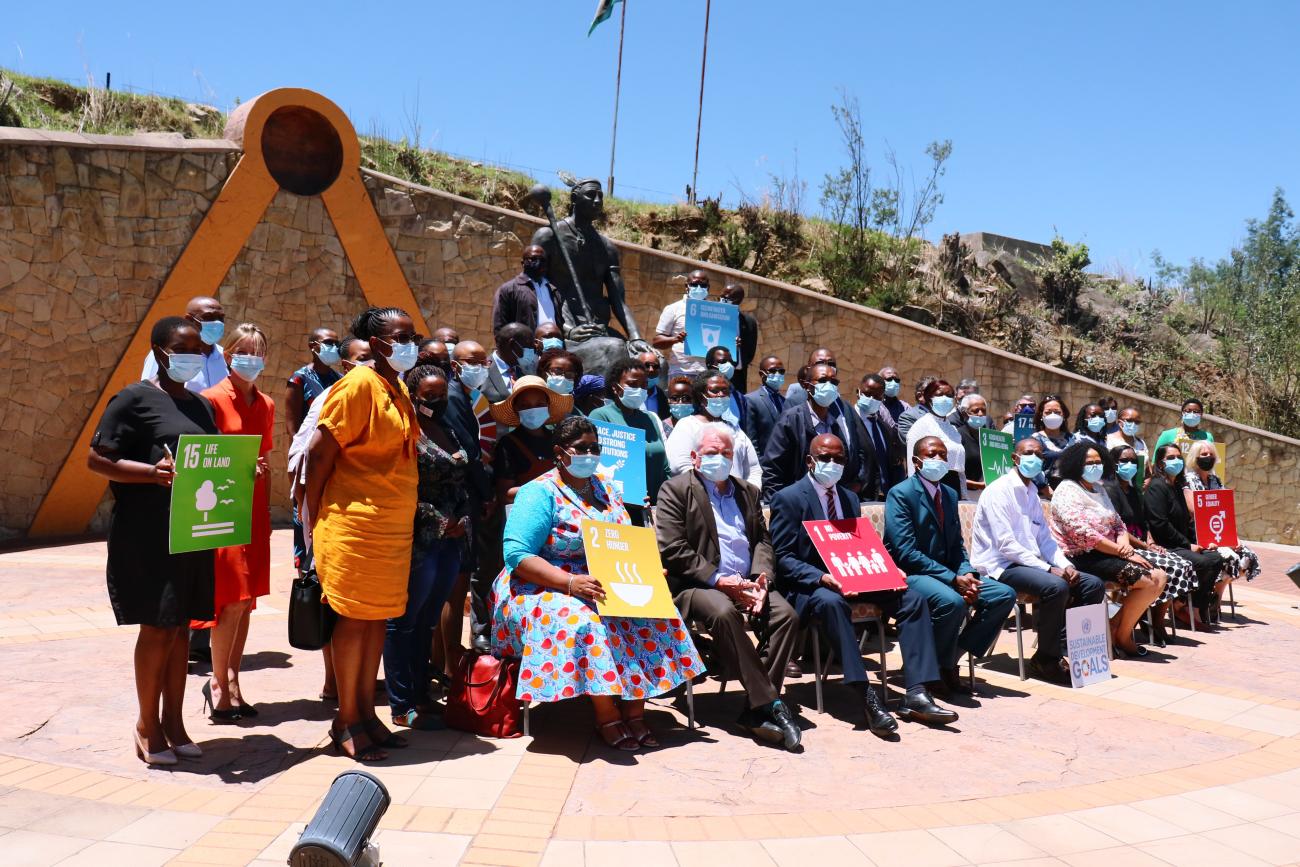UN Country Team Lesotho convenes its annual retreat

The United Nations Country Team (UNCT) Retreat was held on 2- 3 December 2020 in Thaba Bosiu, Maseru District.
The retreat took place during unprecedented circumstances due to the COVID-19 pandemic. During the retreat, UNCT reflected on key achievements in 2020, key challenges particularly considering COVID-19, lessons learned and emerging opportunities and recommendations for 2021 programming.
The UNCT Retreat also responds to the aspirations of the UN Development System reform agenda decided by the General Assembly with the aim of transforming the development coordination system of the UN to better respond to the 2030 Agenda for Sustainable Development.
The first day of the retreat gathered participants across UN resident and non-resident agencies, Government ministries and parastatals (including the Central Bank), NGOs and civil society organizations. Sessions included presentations on an overview of the current socio-economic status of Lesotho, a panel discussion on reflections of the impact of COVID-19 to development in Lesotho, and a floor discussion on building back better for people-centered development.
Lesotho’s weak economic outlook, driven by the global COVID-19 related recession, was presented alongside the risk to human development. The role of government spending to support economic recovery was considered. Further, the risks to health, education and gender outcomes were highlighted and the need for greater social protection was presented. Risks stemming from climate change and political instability were also considered and the relationship between all of the above was negotiated.
The panel discussion hosted a wide range of actors, who all presented on how their different areas had been impacted by COVID-19 and their recommendations for the future.
In regard to the health response, the Ministry of Development Planning noted that “A shortage of health personnel and limits on the number of people who could visit a health facility during any given day reduced the population’s access to health services during the lockdown… The Ministry had to work hard to sensitize the public, particularly from religious organizations, to enable access to sexual and reproductive health services during the pandemic.”
Marc Derveeuw, UNFPA representative, also commented on the impact to the health sector from COVID-19: “At the start of COVID-19, the Kingdom of Lesotho had no testing facilities, which lead to population unawareness. Many health services were also deemed non-essential and were closed during the lockdown. This necessitated a lot of policy work to maintain health services.”
David Healy, from the EU illustrated how the EU’s COVID-19 response focused on social protection: “the EU has worked alongside the Government of Lesotho to increase social protection schemes since 2015… During COVID-19, the EU disbursed an additional EUR 5.5 million to support vulnerable households under a program implemented with UNICEF. The total program has now increased to EUR 21.5 million.”
The private sector representative noted that “The shock to the economy was severe and uneven, Government policy and household preferences dictated what counted as an essential service (and therefore could continue operating).
Looking forward to support the macroeconomic recovery, “the Government must increase debt and keep spending as much as it possibly can to support the economy. However, expenditure must shift towards capital expenditure,” explained the Governor of the Lesotho Central Bank, Dr Retsilisitsoe Matlanyane.
Dr. Marc Derveeuw added that “looking forward, the role of the UN will be to continue to focus on the socioeconomic impact of COVID-19 and the health sector. The UN will support the roll out of vaccinations, access to ARVs and the resumption of the education sector, which is critical.”
“At times, our urgent response to the COVID-19 pandemic may have diverted us away from our planned activities as guided by our Development Assistance Framework. This is to be expected as we shift our focus from development assistance to humanitarian assistance under an exceptional and unexpected situation. Looking forward we will need to assess how to balance the humanitarian and development response to ensure that the Kingdom of Lesotho does not renege in the accomplishment of the SDGs,” remarked the UN Resident Coordinator in Lesotho Mr. Salvator Niyonzima.















